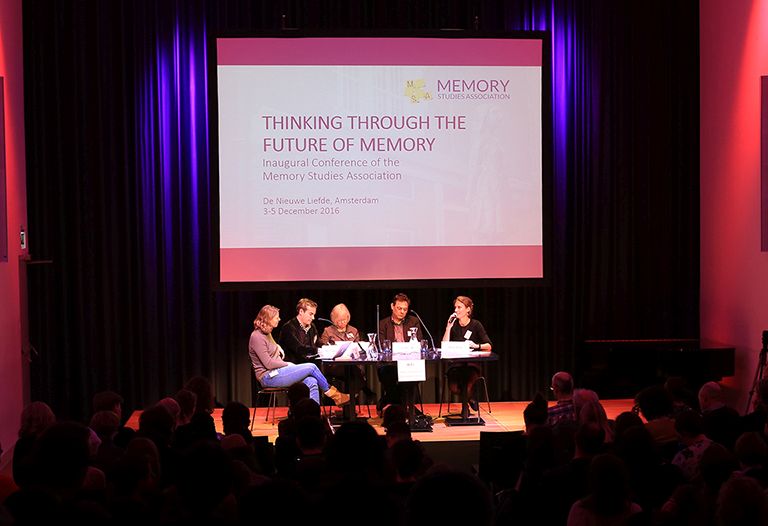The need to include practitioners on partner basis and to take part in public debate - Bartosz Dziewanowski-Stefańczyk sums up the main points of the Inaugural conference of the Memory Studies Association.
On 3-5 December 2016 a „Thinking through the future of memory. Inaugural conference of the Memory Studies Association” took place in Amsterdam, which was supported financially by the European Network Remembrance and Solidarity (ENRS). The conference served as a symbolic inauguration of the Memory Studies Association which is currently being founded. It gathered around 200 leading scholars in memory studies, mainly from Europe and North America. It lasted three days and offered the participants a wide range of 13 panels and three round tables with discussions. Panels were devoted to memory theory and methodology, future of memory studies, memory as a field of studies, memory and the arts, memory and the media, as well as places of memory and amnesia.
A separate panel on regions of memory was organized by the ENRS and chaired by dr Małgorzata Pakier. Dr Joanna Wawrzyniak presented the ENRS project Genealogies of Memory as well as the publication presenting the Regions of Memory conference, which is being written now. The speakers mentioned among others differences in memory culture within Europe. One of the speakers – Tea Andersen proposed a new term of “tectonics” of memory, which she used to speak about the memory of the end of the I World War. Emilia Salvanou on the contrary spoke about the most recent phenomena, i.e. the influence of the “refugee crisis” on the memory studies. Paul Vickers explored the subject of archives in the memory studies and Yifat Gutman spoke about memory activism as a memory region.
One of the most important issues raised during the conference is the need to include practitioners on partner basis not only within the Association, but also in memory studies. Memory scholars can profit from the cooperation with practitioners who specialize in dealing with entangled history on the ground and work with people who experienced wars and totalitarian regimes. Many researchers also underlined the need to take part in the public debate, so that the memory scholars drawing from the past can warn against possible dangers in the current affairs and in the future.
by Bartosz Dziewanowski-Stefańczyk (ENRS)
>> Download a Conference Report by Memory Studies Association
